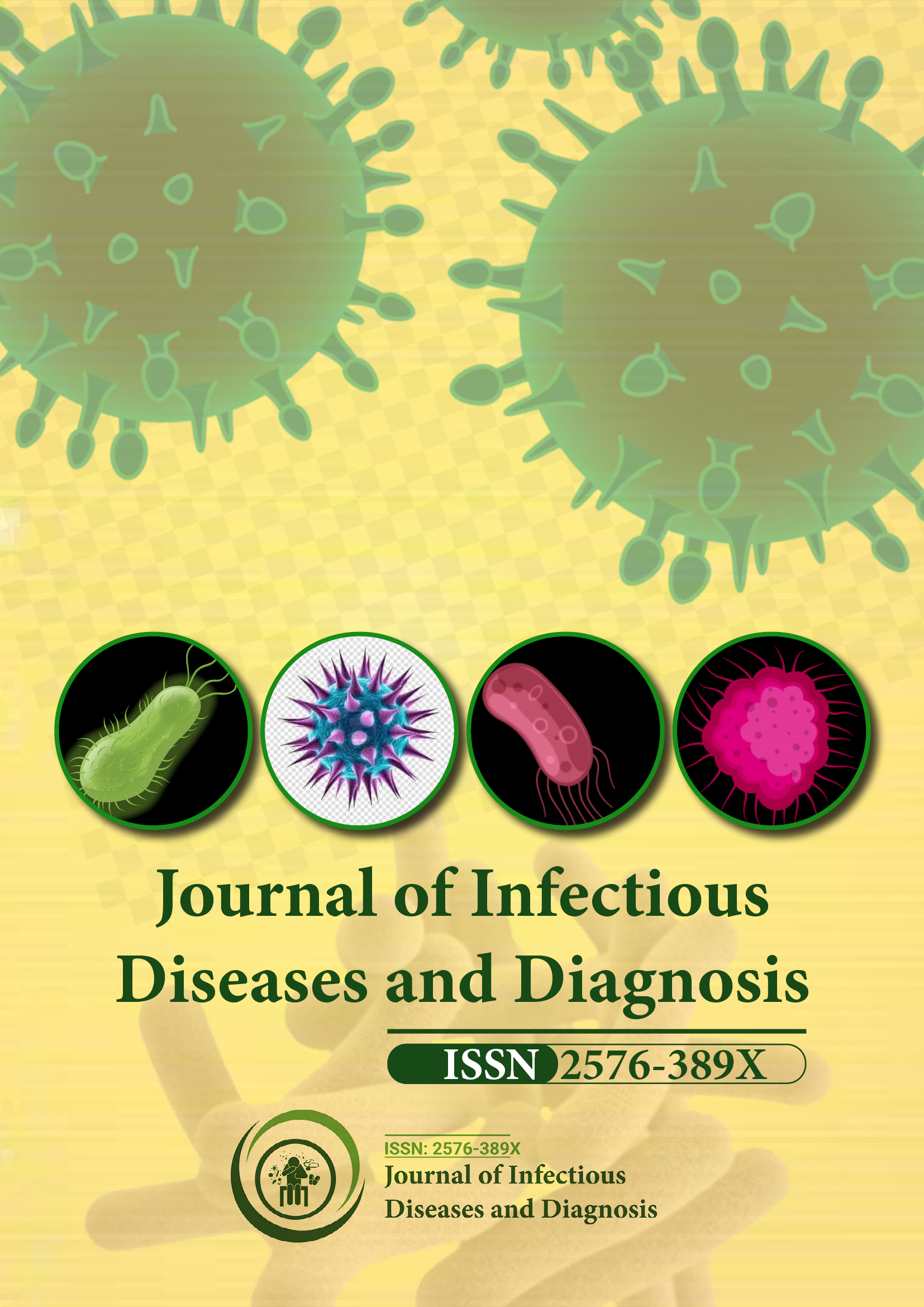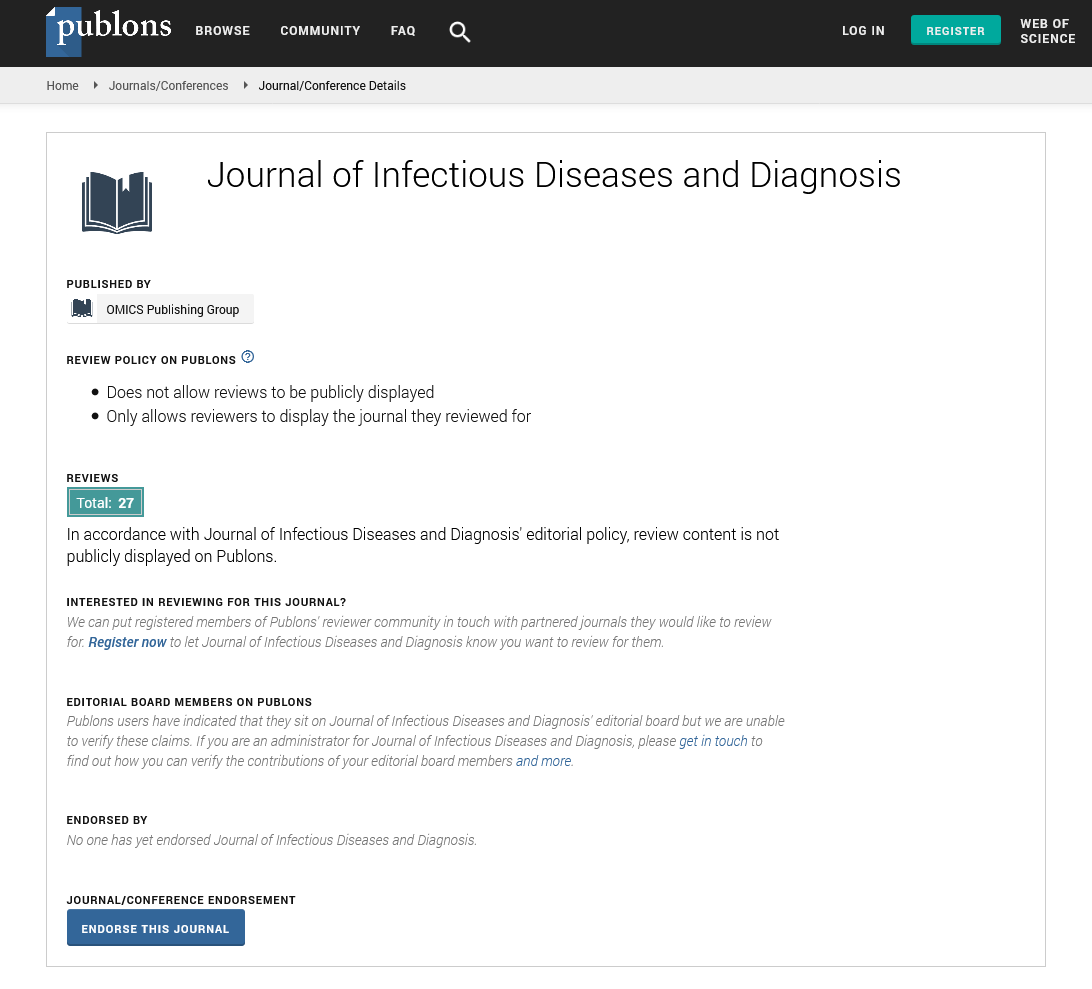Indexed In
- RefSeek
- Hamdard University
- EBSCO A-Z
- Publons
- Euro Pub
- Google Scholar
Useful Links
Share This Page
Journal Flyer

Open Access Journals
- Agri and Aquaculture
- Biochemistry
- Bioinformatics & Systems Biology
- Business & Management
- Chemistry
- Clinical Sciences
- Engineering
- Food & Nutrition
- General Science
- Genetics & Molecular Biology
- Immunology & Microbiology
- Medical Sciences
- Neuroscience & Psychology
- Nursing & Health Care
- Pharmaceutical Sciences
Opinion Article - (2024) Volume 9, Issue 3
Targeting HIV Proteins to Restore Immune Cell Migration
Jane Morris*Received: 01-May-2024, Manuscript No. JIDD-24-26005; Editor assigned: 03-May-2024, Pre QC No. JIDD-24-26005 (PQ); Reviewed: 20-May-2024, QC No. JIDD-24-26005; Revised: 27-May-2024, Manuscript No. JIDD-24-26005 (R); Published: 03-Jun-2024, DOI: 10.35248/2576-389X.24.09.269
Description
The mechanisms through which HIV impairs the immune system are multifaceted and complex. One particularly critical aspect involves the disruption of immune cell migration by specific HIV proteins. This disruption plays a significant role in the virus's ability to evade the immune response and establish chronic infection. Understanding how these HIV proteins interfere with immune cell function is essential for developing strategies to counteract these effects and improve immune system resilience.
Among the HIV proteins, the viral protein R (Vpr) has assembled considerable attention for its role in disrupting immune cell migration. Vpr is a multifunctional protein that contributes to the pathogenesis of HIV by modulating various cellular processes. Research has shown that Vpr can impair the function and migration of immune cells, such as T cells and dendritic cells, which are essential for mounting an effective immune response.
One of the primary ways Vpr disrupts immune cell migration is by interfering with the cytoskeleton. The cytoskeleton is a dynamic network of protein filaments within cells that is essential for maintaining cell shape, enabling cell movement, and facilitating intracellular transport. Vpr has been shown to induce the depolymerization of actin filaments, which are a major component of the cytoskeleton. This depolymerization impairs the ability of immune cells to migrate towards sites of infection or inflammation, effectively hampering the immune response.
Additionally, Vpr affects the signaling pathways that regulate cell migration. One key pathway involves the chemokine receptor CCR5, which is important for directing the migration of immune cells to specific tissues. Vpr can downregulate the expression of CCR5 on the surface of immune cells, diminishing their ability to respond to chemotactic signals. This reduction in chemokine receptor expression further impedes the directed migration of immune cells, reducing their efficacy in combating HIV infection.
Moreover, Vpr has been implicated in the modulation of Nuclear Factor kappa-light-chain-enhancer of activated B cells (NF-κB) signaling. NF-κB is a transcription factor that regulates the expression of genes involved in immune responses, including those necessary for cell migration. Vpr can inhibit NF-κB activation, leading to decreased expression of adhesion molecules and chemokines that are essential for the migration and function of immune cells. This inhibition not only impairs the immune cells' ability to reach infection sites but also reduces their capacity to activate other components of the immune system.
Another HIV protein, Negative Factor (Nef), also plays a role in disrupting immune cell migration. Nef can downregulate the surface expression of Major Histocompatibility Complex (MHC) molecules, which are vital for antigen presentation and the activation of T cells. By reducing the expression of MHC molecules, Nef impairs the ability of immune cells to recognize and respond to infected cells. Additionally, Nef can alter the cytoskeletal structure by modulating the activity of signaling molecules such as p21-activated kinase (PAK), which is involved in actin cytoskeleton remodeling. These alterations further disrupt the migration and function of immune cells.
The combined effects of Vpr and Nef on immune cell migration create a significant obstacle for the immune system's ability to control HIV infection. By impairing the migration and function of immune cells, these proteins help HIV evade immune surveillance and establish a persistent infection. This evasion allows the virus to replicate and spread, leading to the progressive deterioration of the immune system characteristic of Acquired Immunodeficiency Syndrome (AIDS).
Addressing the disruption of immune cell migration by HIV proteins is a critical goal for therapeutic development. Strategies to counteract these effects include the design of small molecule inhibitors that target the interactions between HIV proteins and host cell components. Additionally, gene editing technologies such as CRISPR/Cas9 offer the potential to specifically disrupt the genes encoding Vpr and Nef, thereby restoring normal immune cell function.
Furthermore, enhancing the overall resilience of the immune system through immunotherapies and vaccines remains a vital area of research. By boosting the immune system's ability to respond to HIV, these interventions could mitigate the impact of HIV proteins on immune cell migration and function.
Conclusion
In conclusion, the disruption of immune cell migration by HIV proteins such as Vpr and Nef represents a key mechanism by which the virus evades immune control and establishes chronic infection. Understanding these mechanisms provides valuable insights into HIV pathogenesis and opens avenues for the development of targeted therapies to restore immune function and combat HIV infection effectively. Continued research in this area is essential for advancing our ability to treat and ultimately prevent HIV/AIDS.
Citation: Morris J (2024) Targeting HIV Proteins to Restore Immune Cell Migration. J Infect Dis Diagn. 9:269.
Copyright: © 2024 Morris J. This is an open-access article distributed under the terms of the Creative Commons Attribution License, which permits unrestricted use, distribution, and reproduction in any medium, provided the original author and source are credited.

